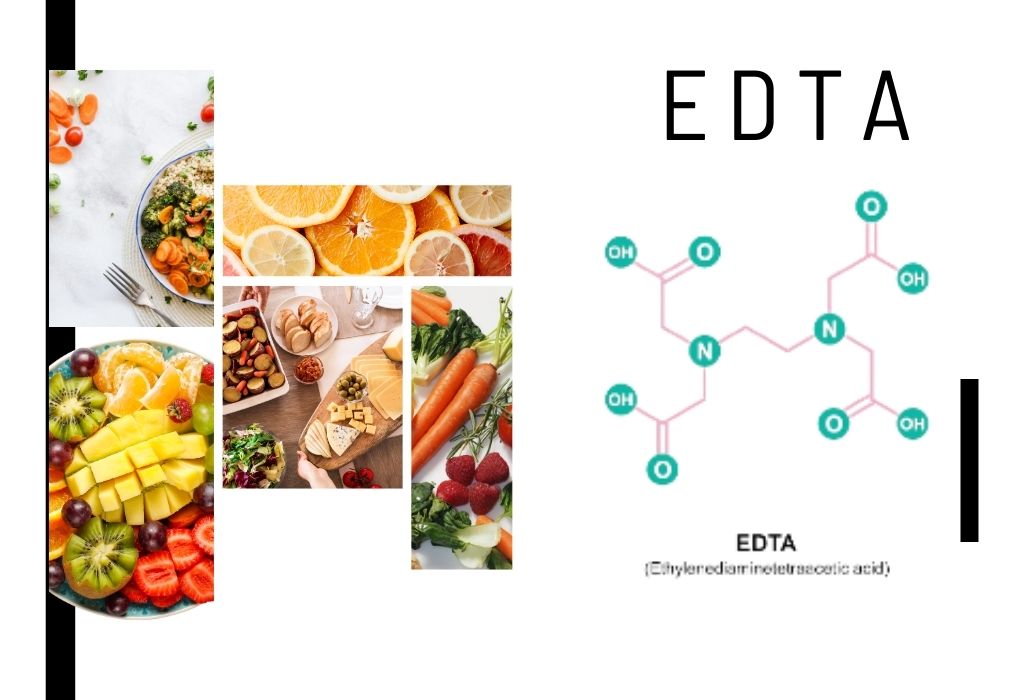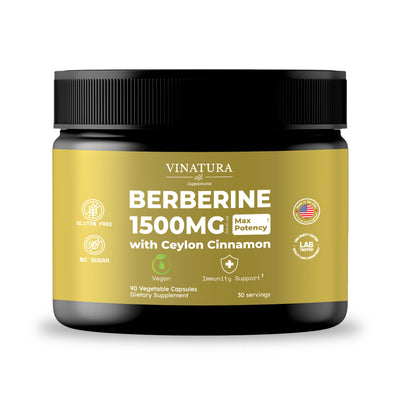
Is Calcium Disodium Edta Vegan? Vegan Lifestyle With Edta
Calcium Disodium EDTA is a synthetic compound that is commonly used as a food preservative and chelating agent. It is made by reacting ethylenediamine, formaldehyde, and sodium cyanide. EDTA stands for EthyleneDiamineTetraacetic Acid. In recent years, there has been an increasing interest in veganism and the consumption of plant-based foods. This has led to many questions about whether certain food additives, such as Calcium Disodium EDTA, are vegan-friendly.
Before exploring further, please read the disclaimer located at the end of this webpage.
What Is Vegan Lifestyle?

Being vegan is a lifestyle choice that involves avoiding the consumption of any products derived from animals, including meat, dairy, eggs, and honey.
Veganism also extends to other areas such as clothing and personal care products, where individuals try to avoid using items made with animal-derived materials or tested on animals such as leather, wool, and cosmetic products.
The Vegan Society defines veganism as "a philosophy and way of living which seeks to exclude—as far as is possible and practicable—all forms of exploitation of, and cruelty to, animals for food, clothing or any other purpose; and by extension, promotes the development and use of animal-free alternatives for the benefit of animals, humans and the environment. In dietary terms it denotes the practice of dispensing with all products derived wholly or partly from animals."
While veganism is defined in this way, the interpretation and application of the vegan lifestyle vary for each individual based on their values and beliefs.
People adopt a vegan lifestyle for various reasons, with some motivated by humanitarian concerns, avoiding the exploitation of animals for human benefit. Others believe that a plant-based diet brings health benefits.
Veganism also reflects a unique connection with religion, with different faiths having varying regulations on vegan living, such as Islam, Catholicism, Hinduism, Buddhism, etc.
Due to these differences, determining whether a food item is vegan or not requires consideration of individual perspectives and beliefs.
So, what are the benefits of the vegan lifestyle? Are there any drawbacks? Let's explore the pros and cons of the Vegan Lifestyle.
You may also like: Is Calcium Disodium EDTA Dairy Free?
The Pros of Vegan Lifestyle
Health Benefits: A plant-based diet can provide numerous health benefits, such as lower risk of heart diseases, diabetes, and certain types of cancer. It is also rich in fiber and essential vitamins and minerals.
Environmental Impact: The animal agriculture industry contributes significantly to greenhouse gas emissions, water pollution, and deforestation. By choosing a vegan lifestyle, individuals can actively reduce their carbon footprint and promote sustainable living.
Ethical Concerns: Veganism stems from the belief in animal rights and opposes the exploitation of animals for human consumption. By choosing a vegan lifestyle, individuals can align their actions with their ethical beliefs.
Creative Cooking: Adopting a vegan lifestyle often requires finding alternative ways to cook and prepare meals, leading to creativity in the kitchen and experimenting with new ingredients.
Inclusivity: Veganism is a lifestyle that promotes inclusivity and non-discrimination towards animals. By choosing a vegan lifestyle, individuals are consciously making efforts towards a more compassionate world.
The Cons of Vegan Lifestyle
Nutritional Deficiencies: A plant-based diet may lack certain essential nutrients such as Vitamin B12, iron, and calcium. It is essential to ensure a well-planned, balanced vegan diet to avoid any deficiencies.
Social Challenges: Eating out or attending social gatherings may become challenging for vegans as most restaurants and events offer limited options for plant-based meals.
Personal Beliefs: Some individuals may have strong cultural or family ties to certain foods, making it challenging to fully adopt a vegan lifestyle.
Cost: Vegan products can sometimes be more expensive than non-vegan ones, making it difficult for individuals on a tight budget to maintain a vegan diet consistently.
About Calcium Disodium EDTA
Calcium Disodium EDTA, also known as ethylenediaminetetraacetic acid, is a chemical compound commonly used in food and personal care products as a chelating agent. It helps bind and remove heavy metals from these products to prevent spoilage and extend shelf life.

Is Calcium Disodium EDTA Vegan?
EDTA is classified as a synthetic compound, meaning it is not derived from animals or plants. However, the manufacturing process may involve animal-derived ingredients like collagen or gelatin.
This raises concerns about its compatibility with a vegan lifestyle and whether those who follow such a lifestyle can consume products containing Calcium Disodium EDTA.
The question of whether Calcium Disodium EDTA is vegan depends on individual beliefs and interpretations of veganism. Some argue that since EDTA is a synthetic compound, it can be considered vegan-friendly.
Its primary chemical components include ammonia, ethylenediamine (1,2-diaminoethane), formaldehyde, and sodium cyanide.
In contrast, some strict vegans, aiming to optimize their health, may choose to avoid chemicals and preservatives like EDTA in their food, even if they have no direct connection to animals.
In reality, EDTA is approved by the FDA as a safe preservative in food [1]. As a result, some individuals adhering to a vegan lifestyle may still use EDTA due to its beneficial properties, such as metal ion binding, inhibition of metal-dependent enzyme activity, and antioxidant properties.
Furthermore, many people incorporate EDTA as a dietary supplement into their vegan lifestyle, benefiting from its advantages. So, how can EDTA contribute to your vegan lifestyle? Let's explore in the next section.
Benefits Of Calcium Disodium Edta For Your Vegan Lifestyle?
As a chelating agent with the ability to bind metal ions, EDTA is recognized as safe and widely applied in the food industry. Beyond its benefits for food preservation, EDTA also provides several additional health benefits for humans, particularly in detoxifying the body:
Cardiovascular Health
EDTA has been studied for its potential benefits in cardiovascular health. Chelation therapy, in this context, is explored as a method to reduce the buildup of arterial plaques and improve blood flow.
Some research suggests that EDTA may play a role in removing calcium deposits and other substances contributing to arterial blockages, thereby positively impacting cardiovascular function. [2]
As a Chelating Agent
EDTA helps bind and remove heavy metals from food and personal care products, making them safer for consumption. This aligns with the ethical beliefs of veganism, promoting the well-being of animals. [2], [3]
Antioxidant Properties
EDTA has antioxidant properties that can help protect against cellular damage caused by free radicals. This can contribute to maintaining overall health and well-being [4].
Nutritional Benefits
EDTA is a source of calcium, an essential mineral for bone health. It also helps in the absorption of other nutrients like iron and zinc [5].
What Vegan Food Contains Calcium Disodium EDTA?
Vegan food products that may contain Calcium Disodium EDTA include:
- Processed foods such as canned or frozen vegetables, soups, sauces, and salad dressings.
- Dairy alternatives like vegan cheese and milk.
- Plant-based protein sources like tofu and tempeh.
- Baked goods such as breads, cakes, and pastries.
- EDTA supplements.
When purchasing these products, it is important to read labels carefully and choose brands that clearly state their ingredients and manufacturing processes.
Other Alternatives Of Calcium Disodium Edta For Vegan Diet
Although EDTA may provide some benefits for a vegan lifestyle, there are also alternatives to consider. These include:
- Natural Chelating Agents: Some natural ingredients like citric acid and acetic acid can act as chelating agents in food and personal care products.
- Plant-based Supplements: Instead of consuming EDTA through processed foods, vegans can opt for plant-based supplements that provide similar benefits.
- Unprocessed Foods: By focusing on a diet rich in unprocessed foods like fruits, vegetables, and whole grains, vegans can limit their exposure to EDTA and other additives. This may also contribute to overall health and well-being.
Conclusion
In conclusion, the decision of whether Calcium Disodium EDTA is suitable for a vegan lifestyle is a personal one. While EDTA may provide some benefits for cardiovascular health, detoxification, and antioxidant properties, vegans also have alternative options to consider. Ultimately, it is essential to carefully assess individual beliefs and prioritize a well-balanced, whole-foods-based diet in any dietary practices. So, whether you choose to include Calcium Disodium EDTA in your vegan lifestyle or not, always remember to prioritize whole, unprocessed foods for optimal health and well-being.
References
- [1] George, T., & Brady, M. F. (2023, June 26). Ethylenediaminetetraacetic Acid (EDTA). Nih.gov; StatPearls Publishing.
- [2] Seely, D., Wu, P., & Mills, E. J. (2005). EDTA chelation therapy for cardiovascular disease: a systematic review. BMC Cardiovascular Disorders, 5(1). https://doi.org/10.1186/1471-2261-5-32
- [3] Sears, M. (2013). Chelation: Harnessing and Enhancing Heavy Metal Detoxification—A Review. The Scientific World Journal, 2013, 1–13. https://doi.org/10.1155/2013/219840
- [4] Çiğdem Mecitoğlu Güçbilmez, Ahmet Yemenicioğlu, & Alper Arslanoğlu. (2007). Antimicrobial and antioxidant activity of edible zein films incorporated with lysozyme, albumin proteins and disodium EDTA. Food Research International, 40(1), 80–91. https://doi.org/10.1016/j.foodres.2006.08.007
- [5] Öznur Özalp, Havva Serap Toru, Mehmet Ali Altay, & Sindel, A. (2019). Evaluation of the Efficacy of EDTA Chelation on Alveolar Bone Healing After Ultrasonic and Conventional Surgery Under Bisphosphonate Medication: A Rat Model. Journal of Oral and Maxillofacial Surgery, 77(10), 1982–1989. https://doi.org/10.1016/j.joms.2019.04.011
Author

Product Disclaimer
Including an ingredient or study does not evaluate, endorse, or recommend any Vinatura product or any third-party product. Some ingredients discussed may not be used in any Vinatura product.
The content of the articles has not been evaluated by the Food and Drug Administration (FDA) and is not intended to promote or endorse any specific product. Any products sold on this website are not intended to diagnose, treat, cure, or prevent any disease.
Opinions and Endorsements
Any claims, statements, or opinions expressed in the articles are those of the author(s) and do not necessarily reflect the views or opinions of the manufacturers of the dietary supplement products. The products sold on this website are separate from the content of the articles and are not directly endorsed or associated with the information presented here.
Liability Disclaimer
The author(s) of the articles, website, and manufacturers of the dietary supplement products do not assume any liability for any potential consequences arising from the use of the information provided in the articles. Ingredient effects, dosages, and safety vary by individual, formulation, and context; some ingredients interact with medications or may be unsuitable during pregnancy or lactation. It is recommended that individuals consult with a qualified healthcare professional before making any dietary or lifestyle changes, including the use of dietary supplements.
Product Usage
Please refer to the product labels and packaging for specific usage instructions and guidelines for the dietary supplement products sold on this website.
Customer Support
For any concerns or questions regarding the dietary supplement products, please contact our customer support team, who will be more than happy to assist you.





Leave a Comment
Be the first to comment.
What do you think?